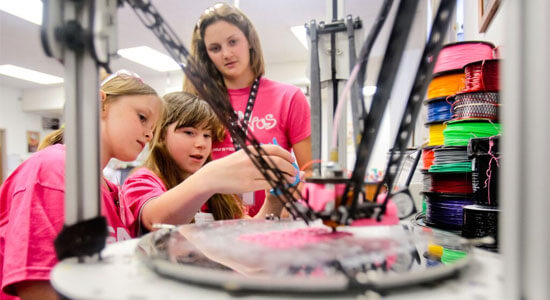Skill vs Interest
When asking different people with successful careers the question, what do you look for in potential employees, every person will have a different answer. Some may say that it is strong leadership qualities; others may say that it comes down to grades. There is no uniform answer. In Berenbaum and Resnick’s essay, “The Seeds of Career Choices: Prenatal Sex Hormone Effects on Psychological Sex Differences”, the two authors assert that though spatial skills and math skills are important for having a career in science, other sex-related characteristics may be more important in career choices and success. This leads to me to ask the question: how does one determine which traits and characteristics are more important than others?
The influence peers and family members play on someone from an early age may be important, but cannot be said to be more important than the ability to perform well. Berenbaum and Resnick argue that peers have a greater influence on one’s choice in career field. While I believe that the people we are around play an influence on what path we choose to go into, I am unsure of whether or not it plays a greater influence than how skilled we are in that respective field. Using Berenbaum and Resnick’s line of argument, if society fosters a better environment for girls and make them more interested in STEM subjects in school. This in turn may create a greater chance for more women to go into that career field, but will these women be hired if their grades don’t match up to that of men? There are still many other factors one considers other than interest, one of them being good spatial and math skills that play a large role in determining the success in the STEM field. Employers look at potential employees holistically and many times, grades and ability to perform well is what gets the potential employees in the door. Once their grades and scores meet the minimum requirement, employers will then look at interest levels and other characteristics. While having a great interest in a career field is important, it is not the most important trait that employers look at.

Retrieved from newsroom.niu.edu
Though biological disadvantages in spatial abilities seen in women does not mean that women aren’t able to succeed, but this problem should be taken into account rather than just dismissed. Berenbaum and Resnick continues their argument that sparking an interest is the beginning to having more women in the STEM field. This interest leads parents to be more inclined to foster an environment that will help them learn more and be better at spatial and math skills, thus closing the gender gap in spatial and math ability. However, men are shown to have greater spatial ability than women biologically. Even though there are ways of improving spatial ability in women, this improvement still has not been able to match men’s spatial ability. I agree with Berenbaum and Resnick that biological disadvantages in women does not mean that women are unable to be successful in the related career field. However, this does not mean it should not be taken into account and be deemed to be of lower importance.
Helping more young girls be interested in STEM subjects by fostering an environment where subject fields are not stereotyped by gender is important. However, should this be more important than improving spatial skills or other factors employers will look at? I would argue that it is not and all factors should be held of equal importance because every employer looks at such factors differently.